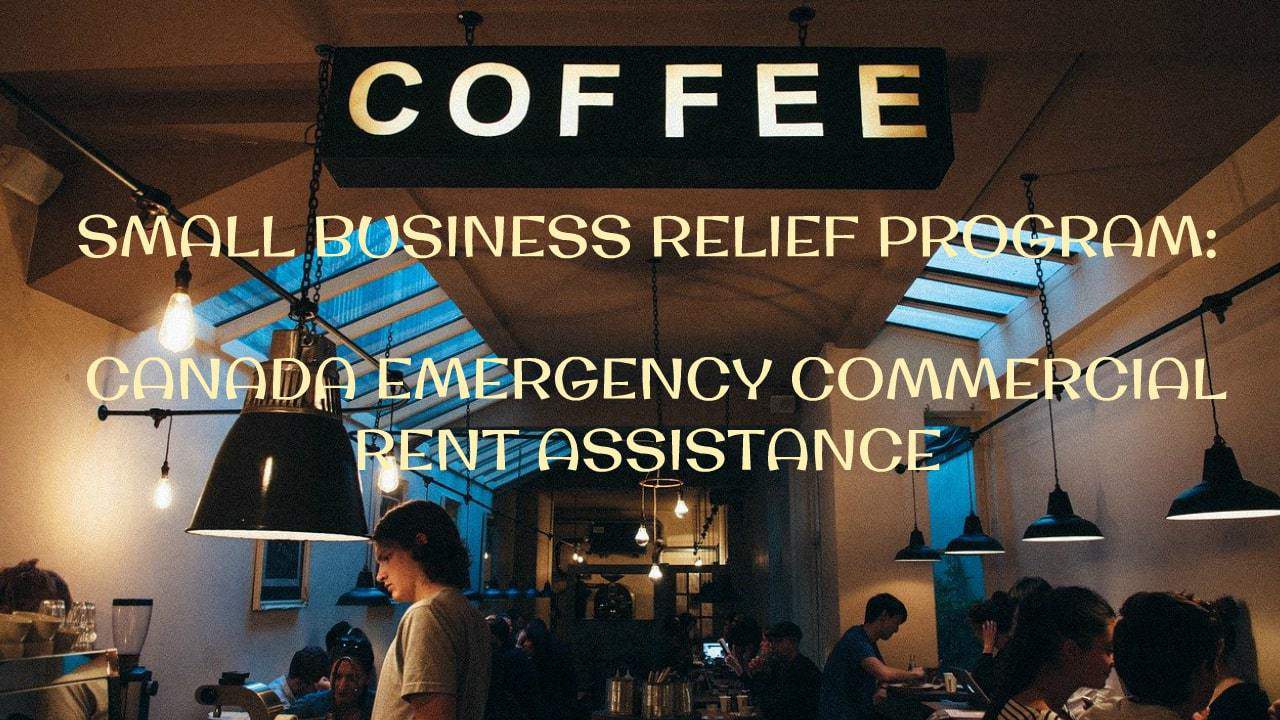
The Ira Smith Team is absolutely operational and Ira, in addition to Brandon Smith, is readily available for a telephone consultation or video meeting.
If you would prefer to listen to the audio version of this Brandon’s Blog, please scroll to the bottom and click on the podcast
Commercial Tenancies Act introduction
On June 18, 2020, Royal Assent was given to the Ontario Bill 192, Protecting Small Business Act, 2020, An Act to amend the Commercial Tenancies Act Ontario. The aim of this provincial law is to prevent commercial landlords from either terminating a commercial tenancy or distraining on a commercial tenant’s property. If that has already taken place, then this amendment to provincial law tries to compensate the commercial tenant for damages.
This is an updated to my April 27, 2020 blog titled, SMALL BUSINESS RELIEF PROGRAM: CANADA EMERGENCY COMMERCIAL RENT ASSISTANCE. In this Brandon’s Blog, I will describe how this Bill 192 amending the Commercial Tenancies Act works. As with everything, the devil is in the details.
Which commercial landlords qualify?
This Ontario law applies to all commercial landlords who:
- Are eligible to obtain help under the Canada Emergency Commercial Rent Assistance (CECRA) for small businesses program. This is designed as an unsecured, interest-free, forgivable loan program administered by Canada Mortgage and Housing Corporation (CMHC).
- Can receive help under the CECRA if the landlord participated in a rent reduction contract with the commercial tenant having a moratorium on the eviction.
To get CECRA for small businesses, the landlord must:
- own commercial real estate which is leased to one or more affected small business tenants;
- go into (or have actually already entered) into a lawfully binding rent reduction agreement for the period of April, May and also June 2020 (presumably subject to extension of the program by the federal government), decreasing an affected small business renter’s lease cost by at least 75%;
- ensure the rent decrease agreement with each affected renter includes:
- a postponement on eviction for the period throughout which the property owner consents to apply the loan funds; as well as
- a statement of rental revenue included in the attestation.
In order to be considered an affected small business tenant, the tenant has to have been in operation before March 1, 2020, as well as should not generate greater than $20 million in gross annual income when calculated on a combined basis, based upon 2019 earnings.
The landlord also cannot:
- Have an owner holding a federal or provincial political office.
- Controlled by a person holding such a political position.
CECRA will not include any federal, provincial, or municipal-owned properties, where a government is the landlord of the small business tenant. Initially, the landlord had to have a mortgage financing the property. CMHC later qualified that this was not the case.
Which small business tenants qualify?
Impacted small business lessees are businesses, including charitable and non-profit organizations that:
- pay no greater than $50,000 in monthly gross lease cost per location (as specified by a valid and enforceable written lease).
- creates no more than $20 million in gross yearly income, calculated on a parent company consolidated basis.
- have experienced a minimum of a 70% decrease in pre-COVID-19 income.
Eligible small business tenants include those who have entered into written valid sub-tenancy arrangements that meet the CECRA requirements.
To determine the 70% reduction in earnings, the following two circumstances apply:
- Your small business was operating throughout April through June 2019. Compare your gross income from April, May and June of 2020 to your revenues of April, May and June of 2019.
- The small business was not running throughout April through June 2019. In this case, compare your average gross revenue from April, May and June of 2020 to your typical gross income for January and February 2020.
How is the Commercial Tenancies Act amended?
Bill 192, Protecting Small Business Act, 2020, modifies the Commercial Tenancies Act to forbid particular activities by property owners if the landlord is or would qualify to receive assistance from the CECRA. If the landlord is accepted and receives the CECRA help, then these provincial amendments cease to apply. The reason for that is because, under the federal program, the landlord has agreed not to evict the tenant.
This provincial legislation also forbids Judges from making a writ of possession that is effective throughout the non-enforcement time out if the basis for making the writ is arrears of rent under the lease. These Commercial Tenancies Act amendments also ban landlords from enforcing a right of re-entry and from seizing any property of the tenant by way of distress for arrears of rent throughout the non-enforcement time period.
The non-enforcement period begins on May 1, 2020, and ends midnight September 1, 2020. This will obviously be subject to either extension or even termination on an earlier day to be called by proclamation of the Lieutenant Governor.
If a landlord exercises a right of re-entry between May 1, 2020, and August 31, 2020, inclusive, the commercial tenant has to recover possession of the commercial space. The tenancy is regarded to be reinstated on the same terms and conditions unless the property owner and the occupant agree on other terms and conditions If it is incapable to return the leased premises to the commercial tenant, the landlord must compensate the tenant for damages.
Similarly, if a commercial landlord distrains against a tenant’s goods in the non-enforcement period on account of rent arrears under a commercial lease, the landlord needs to return any unsold items to the tenant.
Some obvious comments
I have some comments on this Bill 192, Protecting Small Business Act, 2020, An Act to amend the Commercial Tenancies Act Ontario. Most of my comments I think will be obvious. To date, whatever I have read on how landlords feel about these amendments, has not been positive. It will be interesting to see if the Courts reopen prior to August 31, if any landlords go to Court to overturn it and what the Court decision will be.
I think the real strength of the amendments to the Commercial Tenancies Act comes from the fact that the Ontario Courts are closed. No one can challenge the law on a constitutional basis at this time!
So my comments are:
- The wording of the Bill to see if a landlord qualifies is:
80 (1) Subject to subsection (2), this Part applies to a tenancy in respect of which the landlord satisfies either of the following criteria:
- The landlord is eligible to receive assistance under the Canada Emergency Commercial Rent Assistance for small businesses program.
- The landlord would be eligible to receive assistance under the Canada Emergency Commercial Rent Assistance for small businesses program if the landlord entered into a rent reduction agreement with the tenant containing a moratorium on eviction.
A landlord is only “eligible to receive assistance” based on a two-part test; one is a landlord test and the other is a commercial tenant test. A landlord should have the right to receive sufficient financial information from its tenant to see if the tenant can meet its test of reduced gross revenue. The only way a landlord is eligible is if the tenant meets the required tests.
What if the tenant refuses to divulge that information? Can the landlord merely take the position that it is not “eligible”? If so, then the landlord could either terminate the lease or effect distraint. Again, with the Courts closed, it will be all over before the tenant can have their day in Court.
- These amendments are effective beginning on May 1, 2020. The emergency COVID-19 shutdown in Ontario began on March 17, 2020. As a result, many small businesses were not in a position to make their April rent payment. Does this mean that landlords who either terminated a commercial lease or distrained on the tenant’s assets before May 1 are exempt?
- The landlord is not entitled to either terminate the lease or distrain during the non-enforcement period on the assets for non-payment of rent. What if the tenant, prior to the Ontario emergency shutdown was in breach of the lease for other reasons. If the landlord has not yet taken action as a result of those breaches and wishes to get rid of the tenant for reasons other than rent arrears, can the landlord take action during the non-enforcement period as long as rent arrears is not one of the reasons?
- A commercial tenant whose landlord terminated the lease is entitled to compensation for damages if the premises cannot be handed back to the tenant. How the damages are calculated are not spelled out. It will most certainly be the subject matter of future litigation.
A commercial tenant whose landlord distrained on the tenant’s property is only entitled to a return of the property that has not yet been sold. This is presumably because the lease has not been terminated. However, I presume the tenant will not be operated again if all or most of its property has been sold. Now what? More litigation no doubt.
The amendments contained in the Bill 192, Protecting Small Business Act, 2020, An Act to amend the Commercial Tenancies Act Ontario is obviously done to persuade landlords to enter into the CECRA program with their tenants. That is a good thing. As you can see from my comments, it is more persuasion and relying on the fact that the Courts are closed than brilliant wordsmithing language.
Commercial Tenancies Act summary
I hope you have found this Commercial Tenancies Act Brandon’s Blog interesting and helpful. The Ira Smith Team family hopes that you and your family members are remaining secure, healthy and well-balanced. Our hearts go out to every person that has been affected either via misfortune or inconvenience.
We all must help each other to stop the spread of the coronavirus. Social distancing and self-quarantining are sacrifices that are not optional. Families are literally separated from each other. We look forward to the time when life can return to something near to typical and we can all be together once again.
Ira Smith Trustee & Receiver Inc. has constantly used clean, safe and secure ways in our professional firm and we continue to do so.
Income, revenue and cash flow shortages are critical issues facing entrepreneurs, their companies and individual Canadians. This is especially true these days.
If anyone needs our assistance for debt relief Canada COVID, or you just need some answers for questions that are bothering you, feel confident that Ira or Brandon can still assist you. Telephone consultations and/or virtual conferences are readily available for anyone feeling the need to discuss their personal or company situation.
The Ira Smith Team is absolutely operational and Ira, in addition to Brandon Smith, is readily available for a telephone consultation or video meeting.


